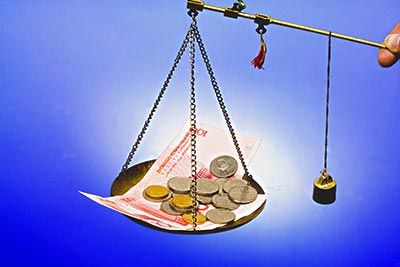Article/Jia Kang of China Economic 50 People Forum
In addition to the consideration of the proportion of income of the government, enterprises and residents, as well as investment and consumption, it is necessary to further explore whether the income distribution gap among our residents is too large, the rules are disordered and unfair, which seriously affects the process of China's modernization.
 What is the real problem of income distribution?
What is the real problem of income distribution? What is the real problem of income distribution? In addition to the proportion of income of the government, enterprises and residents and the consideration of investment and consumption, it is necessary to further explore whether the gap in income distribution among our residents is too large, the rules are disordered, and the problem is unfair, which seriously affects the process of China's modernization?
As mentioned earlier, in a modern country, the premise of property rights protection system is the property rights registration system. Real estate is a permanent property and the most fundamental "property". The premise of property right protection is that there must be a decent property right registration. On this basis, there will also be many positive effects. The understanding and handling of the four outstanding issues will be directly supported by the real estate registration system.
It is difficult to complete the real estate tax legislation this year
Now the central government requires "accelerating the real estate tax legislation and promoting reform in due course". The key point is that the central government emphasizes that 2016 is the node, and important and basic matters related to the fiscal and tax supporting reform should be seen. I think this is actually to pave the way for the 19th National Congress in 2017, and also to pave the way for the decisive results of the comprehensive reform in 2020. Therefore, to speed up legislation, it should be in 2015 and 2016 from now on. I personally think that 2015 is difficult to complete. Although our most ideal vision is that it can be completed in this year, it may not be completed. It will be 2016, and we can observe this process.
According to media reports, real estate registration will be completed in urban areas in 2016, and all urban and rural areas in China will be in place in 2018. If the National People's Congress finally approves and passes the real estate tax legislation before the end of 2016, so that there is tax in the ownership link, then 2017 is a question of implementation according to law, rather than expanding the scope of the pilot.
From the tax point of view, the unified registration will also give a new realm. In my opinion, China's real estate tax legislation must adhere to a basic idea, that is, it is not allowed to copy the general collection model of the United States. It is not allowed to levy one square meter for every square meter. It is necessary to give taxpayers a deduction for the basic housing security area. Originally, decentralization was registered by the department, which was troublesome: there was a house here, and there was a house there. According to the decentralized department registration information, it could not be seen that these houses belonged to a taxable family. Now, with the unified registration system and the nationwide Internet, it will become a very convenient operation.
The real estate registration system must have a comprehensive supporting significance for the reform, development, long-term stability and sustainable operation of the whole country ruled by law. Now we call it "Provisional Regulations", and put it into the component of the legal system. It does not exclude that it will be upgraded to "Real Estate Registration Law" with more mature provisions in a few years, which will be a dynamic and gradual process. In the future, such laws and regulations should support China's normalcy.
The real problem of income distribution
Income distribution is a common concern. Correspondingly, there are two very popular and mainstream views. One point of view is that in China's national income distribution pattern in recent years, the part of income received by the government and enterprises is obviously on the high side. In other words, the share of income of residents is on the low side. This mainstream understanding has been emphasized many times over the years, and there are specific calculation data. For example, the share of residents' income has declined by about 10 percentage points in more than 10 years, and the consumption rate is very low.
For this reason, many people proposed that while expanding domestic demand, efforts should be made to increase the proportion of residents' income, so that consumption becomes the main source of economic growth Power source That is to say, we should shift from investment driven to consumption driven. Whether the basis of this basic quantitative understanding is worth discussing is almost invisible in academic discussions.
In addition, some scholars have proposed that there is a huge amount of gray and black income in China's income distribution after demonstration and calculation. Professor Wang Xiaolu has made several rounds of specific calculations on the implicit income of Chinese residents. In the latest round of calculations, he believes that in our current total GDP, more than 60000 billion yuan is the grey black income of residents. These data are not shown in the official statistics, but of course, these incomes should be included in a part of the community.
According to Professor Wang Xiaolu's understanding, it leads to a judgment: if the implicit income of residents of 5 or 6 trillion yuan is recognized, the same mainstream understanding mentioned above will not be established. Because China's current GDP is more than 50 trillion yuan, of which more than 10 points are actually personal income that has not been counted, then the share of residents' income that was accused earlier is low, according to the latter point of view, it becomes very normal: add 10 points to the share that is now recognized as low, and it becomes at least more than 50%.
Therefore, we have to ask, which of these two widely recognized understandings with mainstream characteristics is right? I have not yet seen any official response from any scholar in this regard. I don't think we can quickly reach consensus in this regard, but it is worth thinking about.
So, what's the real problem? I don't think that some researchers can clearly explain the quantitative value of the previous income pattern and the real investment rate and consumption rate of the government, enterprises and residents. However, in my opinion, what needs to be raised is, where are the real problems about China's income distribution?
In my opinion, we should go deeper into the internal structure of residents' income in China's income distribution, that is, in addition to the consideration of the proportion of income of the government, enterprises and residents, as well as investment and consumption, we need to further explore whether the income distribution gap among our residents is too large, the rules are disordered and unfair, Is it seriously affecting the process of China's modernization promotion? In my opinion, this is the key to the problem, or we thinkers and researchers should pay more attention to the real problem.
(The author of this article introduces: Director of the Institute of Financial Science, Ministry of Finance, researcher, doctoral supervisor.)

